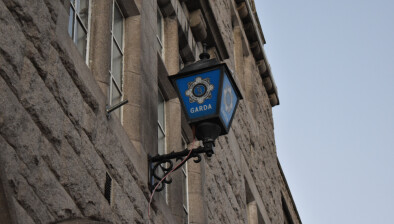High Court: Constitutional rights of child not breached by provisions of Criminal Justice (Public Order) Act 1994

The High Court has determined that a child’s right to equal treatment was not breached by the differing treatment of children and adults under the provisions of the Criminal Justice (Public Order) Act 1994 (as amended).

About this case:
- Citation:[2024] IEHC 224
- Judgment:
- Court:High Court
- Judge:Mr Justice Anthony Barr
Delivering judgment for the High Court, Mr Justice Anthony Barr determined that it is “rational and reasonable, that having regard to their age, the Oireachtas came to the conclusion that it was preferable that children be dealt with under the 2001 Act, where they could avoid a conviction, but would be subject to an adequate level of supervision”.
Background
The applicant was charged with being intoxicated in a public place contrary to section 4 of the Criminal Justice (Public Order) Act 1994 (as amended) when he was 16 years old.
Sections 23A and 23B of the 1994 Act provide for the serving of a fixed charged notice (FCN) by the arresting garda on a person of over 18 years of age who has been arrested for an offence committed under the 1994 Act. If the person elects to pay the fine stipulated in the FCN, that is the end of the matter and they will not receive a criminal conviction. Otherwise, they can challenge the accusation in the District Court.
As the applicant was not eligible to receive an FCN, he was processed under the Juvenile Diversion Programme provided for under the Children Act 2001, and was found to be unsuitable for the programme. Accordingly, he was brought for trial in Dungarvan District Court. The applicant’s solicitor raised a query as to whether an FCN was served upon the applicant, to which the prosecution garda inspector replied that FCNs were not issued to juveniles as they had no source of income.
The hearing was adjourned and the applicant’s solicitor wrote to An Garda Síochána seeking clarity on the issue. The gardaí responded stating inter alia that the issue of an FCN was a discretionary matter for the garda. The matter subsequently came before the High Court by way of judicial review.
The High Court
Mr Justice Barr set out the equality guarantee under Article 40.1 of the Constitution, and considered the provisions of the Children Act 2001, summarising that it provides a mechanism whereby children who are accused of criminal offences can avoid conviction if they admit responsibility and consent to receiving an informal or formal caution, and provides for significant differences in treatment of between children and adults who intersect with the criminal justice system.
The court considered Re Art. 26 and the matter of the Employment Equality Bill [1997] 2 IR 321 which determined that the Oireachtas could legislate in respect of different categories of workers based on age, as long as that was not done in an arbitrary, capricious or irrational way, and noted JD v Residential Institutions Redress Review Committee [2010] 2 ILRM 181 which stated that age was often used as a classification for legislative purposes and taken on its own, was not invidious, unfair or discriminatory.
Mr Justiice Barr also considered B v Director of Oberstown Children Detention Centre & Ors. [2020] IESC 18 which held that the presumption on part of the legislature, that the differences which exist between adults and children warrant different regimes, had not been shown to be factually incorrect or unfair in principle.
The judge also examined Donnelly v Ireland [2022] 2 ILRM 185 in which the court set out inter alia that for a successful claim for a breach of the right to equal treatment, the classification must be for legitimate legislative purposes and will not be so if it is arbitrary, capricious or irrational, it must be relevant to the that purpose and it will not be relevant if not supporting that purpose.
Mr Justice Barr was satisfied that the Oireachtas was entitled to make policy decisions treating different groups within society differently as long as the policy does not unfairly discriminate in favour of one group, or against another, and it must be for the legitimate purpose of achieving an objective in the legislation.
The court accepted the submissions of the respondents that in enacting the amendments to the 1994 Act, the Oireachtas was entitled to have had regard to the fact that the juveniles accused of an offence under s.4 would automatically be considered under the 2001 Act which included provisions specifically designed to enable a child to avoid a criminal conviction.
Having regard to the applicant’s submissions that there are differences between the FCN procedure and the diversion programme, Mr Justice Barr found that the Oireachtas was entitled to provide for a form of supervision of children who accepted their behaviour, as provided for under the diversion programme. The judge confirmed that the Oireachtas could treat people differently based on age for a legitimate purpose, in this case, of ensuring oversight over suspected criminal behaviour by children.
The High Court determined that the interests of a juvenile accused on an offence under the 1994 Act are more than adequately catered for under the provisions of the 2001 Act, and so: “It is rational and reasonable, that having regard to their age, the Oireachtas came to the conclusion that it was preferable that children be dealt with under the 2001 Act, where they could avoid a conviction, but would be subject to an adequate level of supervision.”
The court continued: “I find that the exclusion of children from the FCN regime provided for under s.23A and B of the 1994 Act, is not an arbitrary, capricious or irrational discrimination. Accordingly, I hold that the exclusion of the applicant from the provisions of that section, does not constitute a breach of his rights under Art. 40.1 of the Constitution.”
Conclusion
Accordingly, Mr Justice Barr refused the reliefs sought.
L.T. v. The Director of Public Prosecutions & Ors [2024] IEHC 224










